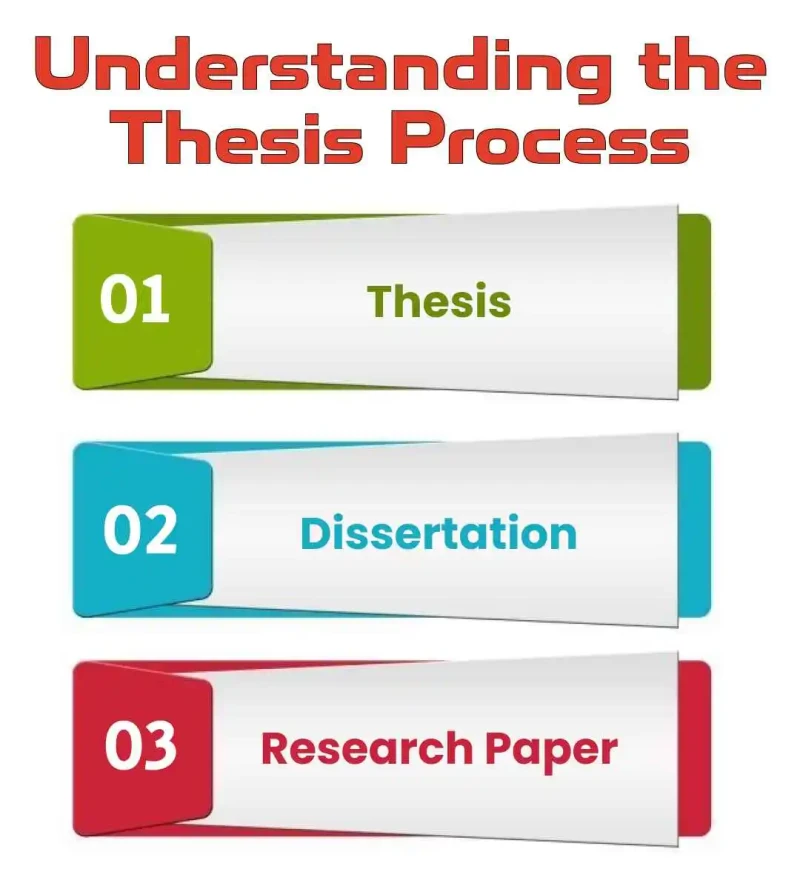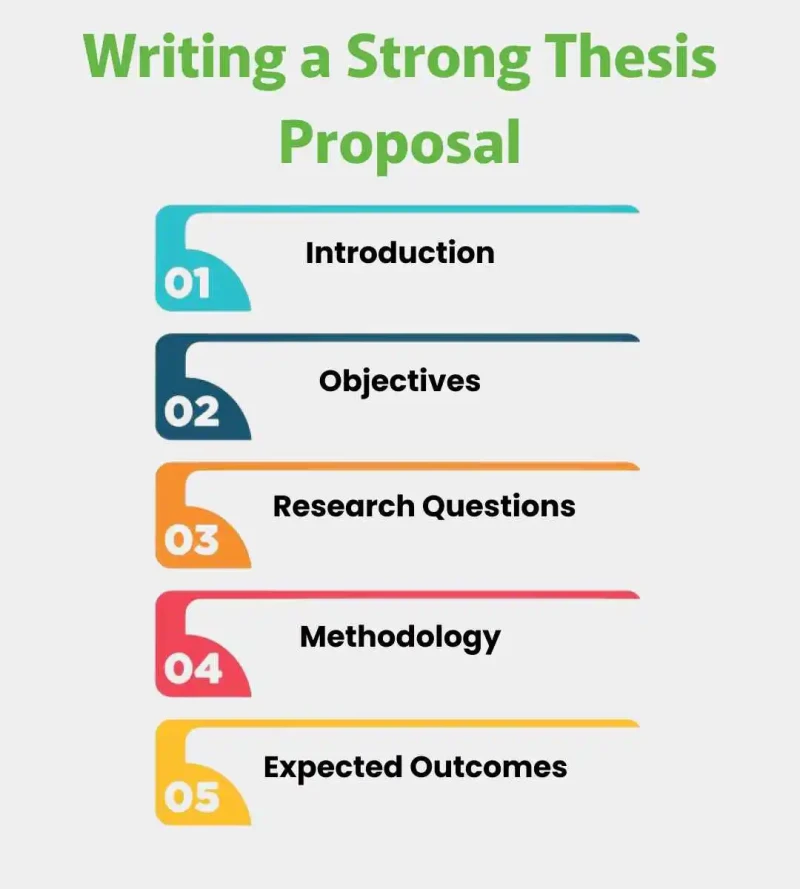Methods of Primary Data Collection in Research Methodology
Master the top methods of primary data collection in research methodology. Learn to use surveys, interviews, and experiments to gather original, high-quality data.

Emilia
Writing a thesis is the most defining part of your academic journey. Whether you are completing a master's or a PhD, knowing how to write a thesis helps you turn your research ideas into a structured and meaningful study. A well-written thesis showcases your analytical skills and academic integrity. It is the reflection of your scholarly growth.
This blog will guide you through every essential stage of writing a thesis, from crafting a strong proposal to final submission preparation. Along the way, you will understand how to pick a topic that truly matters and structure your chapters in a clear, logical way.

It is daunting to begin a thesis, but comprehending the thesis writing process makes it so much simpler. Knowing how to write a thesis starts with understanding the differences among a thesis, a dissertation, and a research paper.
A thesis, which is mandatory in a master's degree, should display your research outcomes on a particular subject, demonstrating your knowledge and capability to analyse complicated concepts.
A dissertation, which is usually required for a doctoral degree, is intended to be more comprehensive and adds to the initial research in your discipline.
A research paper is primarily concerned with reviewing or summarising previous studies instead of generating completely new research. Understanding these differences allows you to approach your job properly and organise your writing effectively.
All universities and faculties have some universal requirements for a thesis. These include having a well-defined research question, a proper literature review, precise methodology, systematic data analysis, and a conclusion that summarises all findings.
Good referencing, compliance with the formatting rules, and maintaining originality are also crucial. Familiarising yourself with the requirements right at the start makes you well-organised and ensures that the thesis is as per the examiner's expectations.

The first step in writing a strong thesis is selecting the right topic. Start by identifying research gap areas in your field. Align your topic with your academic objectives and long-term career goals to ensure your research has meaningful outcomes.
Broad ideas often need refining; narrow them into a focused research question, which should be specific and practical.
A thesis proposal acts as a roadmap for the research. The purpose of the research is to outline what you plan to study and how you intend to approach it.
The following is the key element of a strong proposal.
Introduction: Present the background and significance of your research study.
Objectives: Define clear, attainable research goals.
Research Questions: Formulate the concise question of your research that you aim to answer.
Methodology: Explain the methods and tools which you will use in the research
Expected Outcomes: Describe the potential contribution and findings of the complete research.
A thorough literature review is essential for understanding the current knowledge of the field. Reviewing existing research helps you to identify gaps, refine your research questions and avoid duplication.
On selecting relevant sources, you could synthesise information and present your literature review logically and coherently.
Designing research involves planning the approach which will enable you to collect and analyse data. Choosing appropriate methods is critical to ensure reliability and validity.
After finalising the methodology, it is time to conduct your research. Collect the data systematically, maintain accurate records which follow the ethical standards.
Writing your thesis involves combining all stages of your research into a structured document. The standard thesis structure includes:
Title Page
Abstract
Introduction
Literature Review
Methodology
Results
Discussion
Conclusion & Recommendations
References & Appendices
Using a clear academic writing style without jargon could ensure your arguments are logical and well-supported. Review the drafts, which could give suggestions on improvements.
Revision is crucial, and it helps you to refine your thesis. Check coherence, grammar, formatting and alignment with academic standards. Revision and editing enhance the credibility of your work and ensure your research ideas are presented clearly and accurately.
Before submission, ensure your thesis meets all institutional guidelines. It can help you with finalising the formatting, reference and appendices, which could reduce the risk of delays and rejection.
This is it, the last step of your research journey. The viva is not only about proving your point; it is about demonstrating how well you understand your work. Know your thesis inside and out, anticipate possible questions and practice your explanation clearly and confidently.
Rehearse with peers or mentors who can challenge you with constructive feedback. On the day, stay calm, listen closely, and approach it as a meaningful conversation rather than a test.
Pursuing a thesis may appear intimidating, but knowing how to write a thesis in a step-by-step manner might ease the process. To assist you in your progress and steer clear of pitfalls, below are critical dos and don'ts in thesis writing:
Start early and have a definite milestone: Laying out your thesis into activities and timelines keeps you on track and avoids the eleventh-hour rush.
Order notes, references, and research papers: Organised, you can locate resources easily, and there is consistency in your work.
Regular supervision by your supervisor: Meeting your supervisor at regular intervals enables you to spot the lacunae, eliminate the myths, and remain aware of your research.
Writers' habit of writing daily: Writing small portions of text daily ensures ideas keep flowing and prevents the midnight horror.
Backup work in regular intervals: Cloud computing or hard disks outside keep your drafts and data from being lost.
Proofreads and edits personally: Part checks during the process improve quality and readability.
Don't plagiarise or steal: Use ideas in your words and reference the sources properly to maintain academic integrity.
Don't overlook the formatting, citation, and institutional guidelines: Compliance with the guidelines ensures professionalism and avoids unfair rejection.
Don't leave it until submission day: Multiple revisions improve argument clarity, continuity, ease, and readability.
Don't overlook the literature review or methodology: Poorly executed sections may nullify the validity of your research.
Don't ignore criticism: Constructive criticism helps refine your thesis.
With these and trapdoor avoidance, you will be able to go safely on to writing a thesis and write an extremely well-written, scholastically acceptable research paper.
Students often experience writer's block or procrastination when writing theses. It is normal to feel stalled, but dividing your work into smaller tasks and sticking with a regular writing schedule can get you moving again and progressing steadily.
Another frequent problem is the restricted availability of the data, literature, or research equipment you require. Prior planning, alternative sources, and linking up with academic networks or libraries will ensure that you have the equipment available to back up your research.
It can be overwhelming to balance research, writing, and revisions. Having a highly detailed timeline, a prioritised task list, and realistic deadlines keeps you on track and moving your thesis along without excess stress.
Managing thesis work with personal life can be demanding. Allowing specific research time, establishing boundaries, and frequent breaks allows you to stay productive as well as healthy throughout the process.
By identifying these hurdles early on and strategising how to overcome them, students can better manage the thesis process and remain motivated to produce a quality, impactful research project.
The journey from research proposal to final submission is demanding but worthwhile. Each step, from selecting a specific topic and reading literature to designing methodology and defending your work, sharpens your skills and constructs your research.
For unsure or stuck students, obtaining expert thesis guidance can introduce clarity, organisation, and direction. Professional direction may enable you to refine your ideas, uphold the academic level, and generate an effective as well as satisfying thesis.
By combining careful planning and professional direction, your thesis experience is a worthwhile achievement that bears witness to your dedication and growth.
Master the top methods of primary data collection in research methodology. Learn to use surveys, interviews, and experiments to gather original, high-quality data.
Don’t write your methodology without reading this. Learn why purposive sampling is essential for case studies and how to define your inclusion criteria. Url:purposive-sampling
Master the chapterization of thesis to ensure logical flow. Learn the standard academic framework for organizing research into a professional, approved document.
A practical guide to sentiment analysis research papers covering methodologies, datasets, evaluation metrics, research gaps, and publication strategies.
Master data analysis for research papers. Learn quantitative and qualitative methods, cleaning, and reporting standards to ensure your study meets journal rigour.
Want to impress your peers? Discover the best ways to condense your research, avoid common mistakes, and handle tough questions at any academic conference.